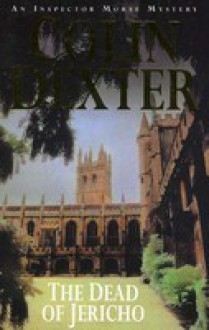

This third installment in Matt Koceich’s Imagine series is my favorite so far. It handles issues pertinent to both Biblical and contemporary society, such as child exploitation and not fitting in, with grace, adding in just enough detail to make sure that young readers understand the situation without it being overwhelming or too frightening. Jake Henry makes a laudable role model, and his situation of feeling alone and unwanted resonates with readers of all ages. His experience in the world of the Biblical Jericho vividly demonstrates a lesson from which we can all benefit: “It’s like God is using this to show me I’m never alone, and I always have a job to do no matter what I feel inside or how crazy the situation is on the outside.” Undeniably, such an outlook on life helps all of us to face our fears and to fully rely on God even when our walls—literal or figurative—are crumbling down around us.
I received a complimentary copy of this book from Barbour Publishing and was under no obligation to post a review.

5/13 of the mystery novels by Colin Dexter featuring Chief Inspector Morse and this one, published in 1981, was a worthy winner of the CWA Silver Dagger. The book is split into a prologue, four books and an epilogue, but curiously, Morse doesn't assume the lead of the investigation into the death of a passing female acquaintance until the start of Book 3 and DS Lewis is also belatedly introduced over halfway in. Of course the benefit for Morse is that unfettered by investigative protocols at the outset, he is able to deploy some unconventional tactics and privately question whether the victim had indeed committed suicide. However, we can also see the stabilizing influence of Lewis, keeping his superior grounded and challenging the more fanciful inventions of Morse's prodigious imagination.
The crime is set in 'Jericho' which is apparently a former industrial area of Oxford alongside the canal and though the lack of a reliable provenance for the name is intriguing, I enjoyed the map, which enabled the reader to follow the street and landmark references. We also learned that Morse is now fifty years old, so three years have seemingly passed since the previous novel.Still, it is the contrasts, wealth and poverty, culture and depravity, learned and illiterate, attractive and ugly, which again permeate the characters and present a sometimes sordid display of human behaviour. Meanwhile, the enigma that is Morse, a flawed genius subject to the vagaries of imperfect instincts, is exposed just a little more and the longsuffering Lewis has to bite his tongue in the face of tetchy, diva-like tantrums from his volatile boss.
The plot is deceptively simple, but the clues are deftly assembled and rearranged as Morse veers off on fruitless tangents, only for his hypotheses to be dismantled and constructed anew in the light of changed evidence. Of course, the quaffing of beer remains central to all the meaningful progress in the case, but it is also in these moments, typically shared by Morse and Lewis, that shine a dull light on the burgeoning intimacy of their relationship, such as when Morse asks his sergeant why he calls him 'sir'.
It's interesting that in the TV adaptation, it was hard not to be enthralled by the character played by John Thaw. On the page though, it's equally hard not to find the brilliant Chief Inspector a rather tragic and dislikeable man. Perhaps, It is the presence of Lewis that deliberately keeps Morse honest and anchored among mere mortals, but it is a pretty thankless task!
Tak, jestem fanem Kinga. jego twórczość co jedno z najlepszych rzeczy jakie mnie spotkało w czytelniczym życiu. Problem jest taki, że z czasem zapoznałem się ze wszystkimi jego dziełami. Może więc wyjść poza ramy czytelnicze i rzucić okiem na powieści graficzne, czyli komiksy. Potencjał jest ogromny. Dzisiaj na rozkład trafia pięć pierwszych tomów.
Postanowiłem ocenić wszystkie tomy zbiorczo, ponieważ historia w nich zawarta to jeden ciąg zdarzeń i trudno oraz nienaturalnie było by to rozdzielać. Jedynym wyjątkiem może być pierwsza część, a więc "Narodziny rewolwerowca". Skąd ten wyjatek? Otóż w pierwszym tomie otrzymuje historię, którą już znamy. Tzn znamy, jeżeli czytaliśmy "Czarnoksiężnik i kryształ", a więc czwartą część cyklu Mroczna Wieża. Jest to swoiste wprowadzenie w świat oraz historię Rolanda. Lecz nawet znając tą historię z chęcią przerzucałem kolejne strony. Odświeżyłem swoją pamięć i mogłem ze spokojem sięgnąć po kolejne części. A o czym opowiadają? Zastanawiam się jak to opowiedzieć, aby nie zdradzić zbyt wiele. Powiedzmy, że są to losy Rolanda, młodego rewolwerowca od momentu zdobycia prawa do noszenia broni, do chwili gdy poznajemy go na łamach cyklu literackiego. Takie jest założenie, ale jak się to rozwinie nie jestem w stanie przewidzieć.
Oceniając samą fabułę jest niesamowicie. Powrót do Świata Pośredniego po kilku latach nadal wywołuje u mnie masę emocji. Dialogi są cudowne a narrator w bardzo udany sposób oddaje charakterystyczny styl Kinga. Poznajemy perypetie młodego Rolanda, gdy jeszcze jest beztroskim młodzieńcem ,a później stopniowo popada w rozpacz i uczucie bezsilności spowodowane kolejnymi wydarzeniami. Jest to świetna szansa na powolną analizę przypadku głównego bohatera. oraz lepsze zrozumienie motywów jego postępowania. Dodatkowo możemy zagłębić się w ten świat nie tylko za sprawą naszej wyobraźni, ale i świetnych rysunków. No w końcu to komiks! Lecz ten, kto spodziewa się kreski znanej z kaczora Donalda niech od razu stąd wyjdzie. Rysunki są dojrzałe i zdecydowanie dal pełnoletnich czytelników. Co najważniejsze jednak odpowiadają moim wyobrażeniom, które miałem podczas wcześniejszej lektury "Mrocznej wieży". Chyba nic więcej nie trzeba
"Cykl Mroczna wieża" w wydaniu komiksowym to punkt obowiązkowy dla każdego fana cyklu oraz Kinga. Może być też doskonałym wstępem dla nowych czytelników, jednak z zastrzeżeniem, że pierwszy zeszyt będzie zdradzał praktycznie całą fabułę 4 tomu powieści, więc trzeba się z tym liczyć. Tak czy siak polecam serdecznie i ide szukać kolejnych części :)
 I DNF'ed this book at 57%.
I DNF'ed this book at 57%.